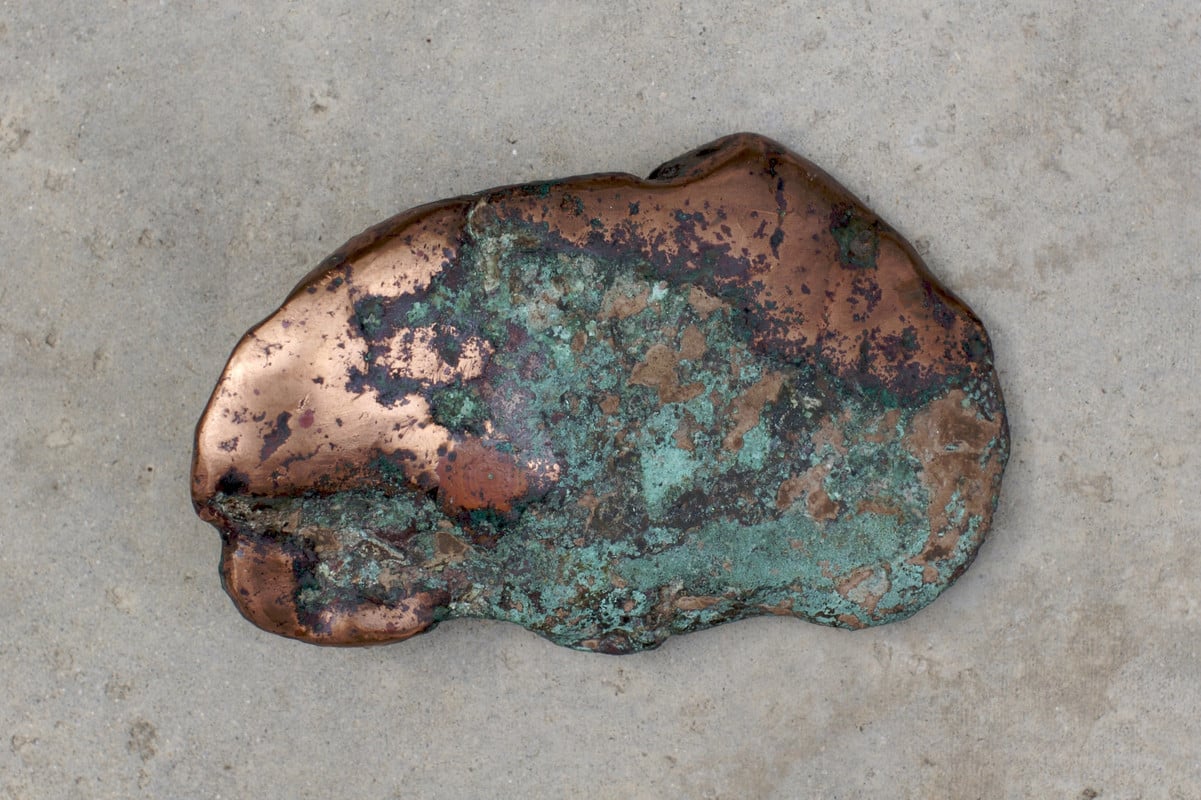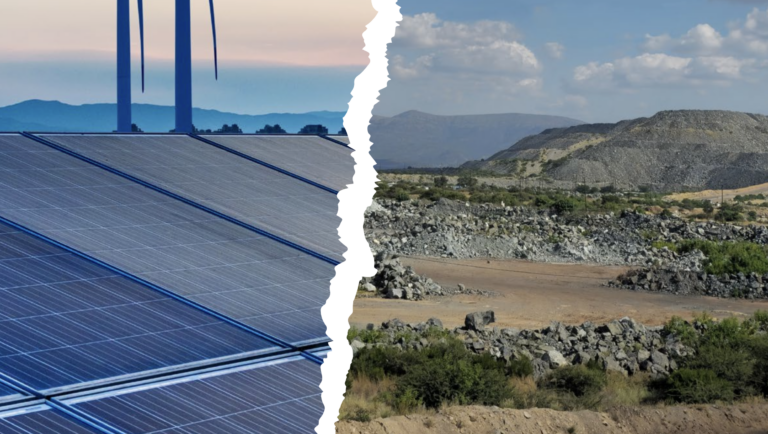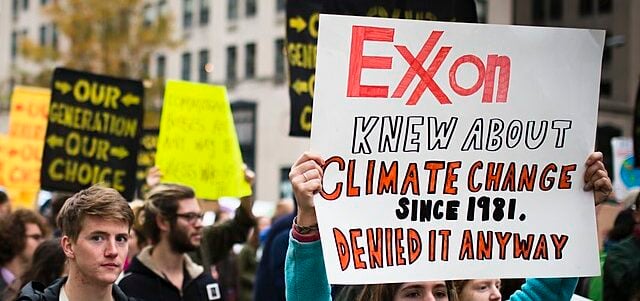
European Union: rules for batteries should cover bauxite, copper, iron
The European Union(opens in new window) ’s proposed batteries regulation should require importers and manufacturers to source the bauxite, copper, and iron used in batteries responsibly, a coalition of 16 organizations said today. The coalition includes Amnesty International, Earthworks, Finnwatch, Germanwatch, Human Rights Watch, Inclusive Development International, INKOTA, PowerShift, RAID, SOMO, and Transport & Environment, as well as human rights and environmental activists from producer countries.
The batteries regulation(opens in new window) would create mandatory requirements for all batteries – portable, automotive, electric vehicle, and industrial – placed on the EU market, including rules requiring battery importers and manufacturers to identify and address actual and potential human rights and environmental abuses in the supply of key raw materials. The European Parliament has proposed a list of raw materials that includes bauxite, copper, and iron, as well as cobalt, graphite, lithium, and nickel. National governments in the European Council want to exclude bauxite, copper, and iron from the list. The Council, Parliament, and Commission began negotiations on the final draft regulation on April 20, 2022.
“The European Union’s vital work to ensure that battery supply chains are free from human rights and environmental harms will fall short if it excludes bauxite, copper, and iron,” said Jim Wormington(opens in new window) , Senior Corporate Accountability Researcher and Advocate at Human Rights Watch. “The three materials are important to battery production but too often the way they are extracted and processed has been a major contributor to human rights and environmental damage worldwide.”
Bauxite is the ore needed to make aluminum, a key material for electric car batteries. Four tons of bauxite are needed to make a single ton of aluminum. Volkswagen stated in 2021 that aluminum makes up 126 kg of a typical 400 kg electric car battery, more by far than any other metal. The International Aluminum Institute, an industry group, forecasts that aluminum’s usage in batteries and other electric vehicle components means that automobile manufacturers will double their aluminum consumption by 2050.
Copper is used in battery anodes and electric wiring. The International Copper Association, an industry group, projected(opens in new window) in 2019 that energy storage applications will raise annual copper demand by 2.3 million tons, approximately 10 percent of global supply, by 2029. Iron, needed for the steel used for battery casings, is also used in several emerging battery technologies.
Although the aluminum(opens in new window) , copper(opens in new window) , and steel(opens in new window) industries promote their sustainability and green credentials, all three materials have been linked to destructive human rights and environmental impacts. The mining of bauxite is the most significant contributor to deforestation within mining leases in the Brazilian Amazon rainforest and has led to widespread loss and destruction(opens in new window) of agricultural land and water resources in Guinea, a West African country with the world’s largest deposits. The large amounts of energy needed to refine and smelt aluminum – and the industry’s continued heavy reliance on coal for that energy – also means that aluminum production is responsible for two percent of global greenhouse gas emissions.
“I’ve witnessed first-hand the devastation that bauxite mining has caused to dozens of communities’ land, livelihoods, and local environment,” said Mariama Barry, a Guinean activist and Africa Program associate at Inclusive Development International, which is working with Guinean communities seeking redress(opens in new window) for the harm caused by bauxite mining. “The increased demand for aluminum for electric vehicle batteries and other energy technologies should be a chance to recognize and respect the rights of workers and communities rather than exacerbate existing abuses.”
Copper mining and processing also comes with significant human rights and environmental risks. In Zambia, copper mining has reportedly(opens in new window) resulted in large-scale land loss for farmers, including through forced evictions, as well as water and air pollution. Copper and cobalt are also often mined together, resulting in similar human rights impacts. In the Democratic Republic of Congo, researchers in 2020 found evidence(opens in new window) that exposure to toxic pollution is associated with birth defects in the children of cobalt and copper miners. Human rights groups in 2021 released a report(opens in new window) documenting labor rights abuses in Congo at five of the world’s largest copper and cobalt mines, including unsafe working conditions, degrading treatment, discrimination, and racism.
“Cobalt may have grabbed the headlines, but for workers and local communities the mining of copper has the same devastating impact on human rights, labor rights, and the environment,” said Josué Kashal, Monitoring and Evaluation Manager at Centre d’Aide juridico-judiciaire(opens in new window) , a Congolese legal services organization that cowrote the 2021 report. “Governments should be requiring companies to source both copper and cobalt responsibly.”
Iron ore mining and processing also carries significant environmental and social risks. In January 2019, the collapse(opens in new window) of a dam in Brumadinho, Brazil, that stored waste from iron ore mining caused a deluge of toxic mud and mining waste to sweep through a nearby town, burying more than 250 people alive(opens in new window) . In 2015, the failure of another iron ore dam in Brazil(opens in new window) had already killed 19 people and caused widespread environmental damage.
The steel industry’s burning of coke and other forms of coal to process iron ore also releases greenhouse gases and large quantities of contaminants that pollute the air. Following a 2019 visit to Brazil, the world’s second largest iron ore producer, the United Nations special rapporteur on toxics and human rights stated(opens in new window) that the pollution and resulting health problems communities had experienced in Piquiá de Baixo, a community(opens in new window) in the heartlands of Brazil’s steel industry, “is a clear violation of rights to life, health, information, and many others.”
“Incidents like Brumadinho, one of the worst mining-related disasters of the past decade, demonstrate why battery manufacturers and importers should be required to source raw materials responsibly,” said Alejandro González, Researcher at SOMO. “The European Union should include bauxite, copper, and iron in the scope of the battery regulation to protect workers and communities against human rights and environmental abuses.”
List of signatory organizations:
Amnesty International
African Resources Watch (AFREWATCH)
Centre d’Aide juridico-judiciaire (Democratic Republic of Congo)
Collectif des organisations de la Société Civile pour la défense des droits des communautés (Guinea)
Earthworks
Finnwatch
Germanwatch
GreenIT.fr
Human Rights Watch
Inclusive Development International
INKOTA
PowerShift
Rights and Accountability in Development (RAID)
Setem Catalunya
SOMO
Transport and Environment
Do you need more information?
-

Alejandro González
Senior Researcher
Related news
-
 The Counter: strengthening the fight for climate justice around the worldPosted in category:Long read
The Counter: strengthening the fight for climate justice around the worldPosted in category:Long read Luis ScungioPublished on:
Luis ScungioPublished on: -
The hidden harm of green hydrogen Published on:
 Ilona HartliefPosted in category:Publication
Ilona HartliefPosted in category:Publication Ilona Hartlief
Ilona Hartlief
-
 ExxonMobil sues the Netherlands over gas field closurePosted in category:News
ExxonMobil sues the Netherlands over gas field closurePosted in category:News Bart-Jaap VerbeekPublished on:
Bart-Jaap VerbeekPublished on:

